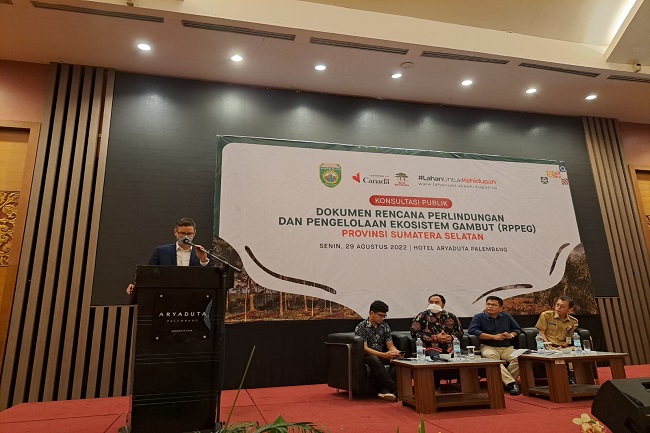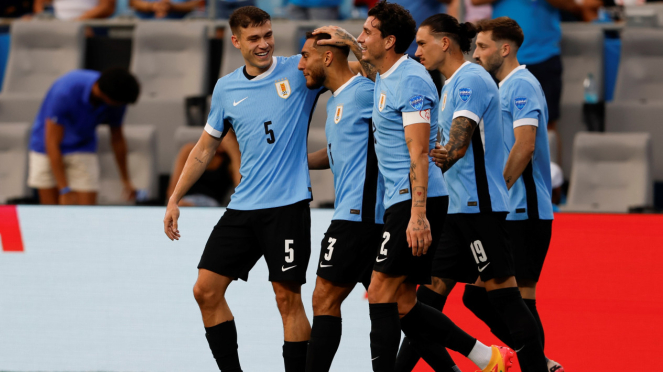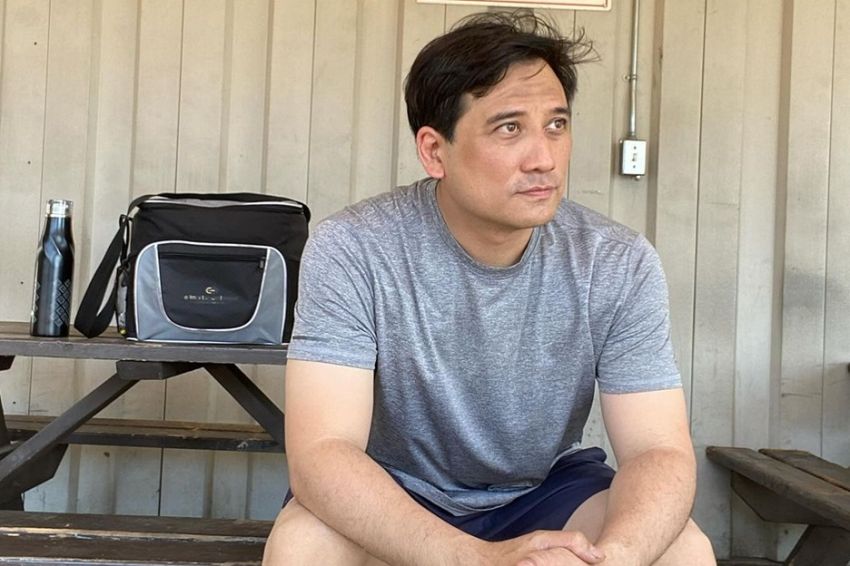Palembang, Gatra.com – The Department of Environment and Lands (DLHP) of the Province of South Sumatra (Sumsel) is continuing the process of completing the Peat Ecosystem Protection and Management Plan (RPPEG) document in order to get input and suggestions from parties.
The public consultation activity on the South Sumatra RPPEG document, involving various stakeholders in this field, especially those related to the management of natural resources and peat ecosystems, took place at the Aryaduta Ballroom Hotel Palembang, Monday (29/8). The event took place in the presence of the Head of Cooperation of the Canadian Embassy in Indonesia, Kevin Tokar.
In addition, the forum also agreed on strategies, policy directions, programs, activities and targets in the RPPEG of South Sumatra Province as an initial process in the commitment to implement a sustainable peat management.
The Head of Damage Control and Environmental Maintenance of DLHP South Sumatra, Drs Wilman SH MH said that the South Sumatra RPPEG document which was prepared lately covered all discussions including including the political strategies of the programs and today a public consultation was held to receive input and suggestions from stakeholders regarding the content or contents of the South Sumatra Province RPPEG document.
“Referring to LHK Ministerial Regulation No. 60 of 2019 on Procedures for Development, Establishment and Amendment of Peat Ecosystem Protection and Management Plan (RPPEG), one of the principles of the preparation of the RPPEG document is that it is participatory involving the parties,” he said.
The team of South Sumatra peat restoration experts, Syafrul Yunardi, said that up to 40% of the total area of 1.2 million hectares of peatlands in this region have been recorded in a state declining or degraded. He explained that the South Sumatran peat bog is in the form of peat swamp forest.
“Above there is forest, below there is peat, but in reality the forest is being cut down and cleared for plantations and agricultural activities,” he said.
The clearing of the peat forest, Syafrul said, is in line with high population growth which results in a limited area of productive land. “In the past, we didn’t look at peat bogs, because they are marginal land, that is to say less fertile, but because of the demand [lahan] up, enter the plantation,” he said.
Production activities on peatlands also have the potential to cause forest and land fires (karhutla) due to the channeling carried out by concession companies. “In fact, the peat swamp forest is flooded almost all the year round, if the peat swamp forest is good, it will never burn. That’s why the channel must be blocked so that the peat does not dry out”, did he declare.
Syafrul said various parties have made efforts to protect and manage the peat ecosystem. In fact, he said, South Sumatra has also received support from many countries to create sustainable peatlands. “One of them is Canada through the Land4Lives project, whose location is in districts with quite significant peatlands in South Sumatra,” he said.
The preparation of the South Sumatra RPPEG document was supported by the Land4Lives project, which is a collaboration between the Government of Indonesia through the Ministry of National Development Planning/Bappenas and the Government of Canada through the intermediary of Global Affairs Canada (GAC).
The head of cooperation at the Canadian embassy in Indonesia, Kevin Tokar, said his party has pledged to spend 190 billion rupees for better land management in three provinces of the country, including South Sumatra.
“South Sumatra is the second largest area of peat ecosystems in Indonesia, so we consider it necessary to support better peat management,” he said. Canada also supported the development of the RPPEG document for sustainable peat management.
In South Sumatra, the implementation of the Canadian program is in partnership with World Agroforestry (ICRAF) Indonesia. According to Kevin, Indonesia cannot meet its commitment to reduce the impact of climate change if it fails to manage peat sustainably.
“However, our goal is not only to fight climate change, but also to help farmers implement better agricultural governance,” he said.
Journalist: Bubun K

“Internet fanatic. Evil organizer. Tv fanatic. Explorer. Hipster-friendly social media junkie. Certified food expert.”



:strip_icc():format(jpeg)/kly-media-production/medias/2579310/original/039167700_1546583310-kanada.jpg)
:strip_icc():format(jpeg)/kly-media-production/medias/4889148/original/004013400_1720683504-firman_1.jpg)

